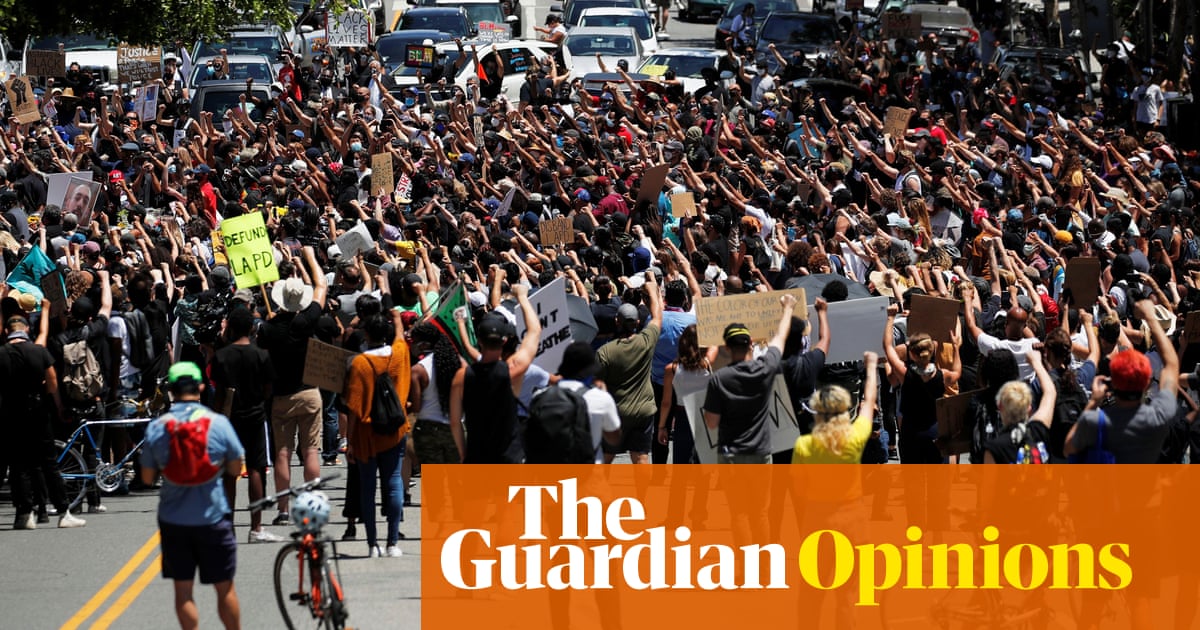
Largely overlooked during last week’s extraordinary events was a letter written by the president’s erstwhile personal lawyer and retweeted by Trump.
As you’ll recall: last week President Trump used military personnel to forcibly clear protesters outside the White House so he could do a surreal photo op at St John’s church. Then Trump’s former secretary of defense, Gen James Mattis, published a statement in the Atlantic condemning his former commander-in-chief for abusing his authority and failing to exercise unifying, mature leadership.
Trump’s former personal lawyer, John Dowd, rushed to Trump’s defense. His letter – a personal note to Mattis, whom he addresses as “Jim” – is an unusual and disturbing document. In it, Dowd accuses Mattis of letting himself be used by a “bunch of hack politicians” and aligning himself with the “ugly, hateful, disgraceful” attitudes of Democratic politicians. Mattis, Dowd asserts, has sullied his once-sterling reputation for all time.
But Dowd’s letter does more than simply seek to discredit Mattis. By way of justifying the president’s use of force in DC, Dowd brands those collected in Lafayette Park as “phony protesters” who “were not peaceful and are not real”. They were, Dowd declares, “terrorists”. To be clear, Dowd is not describing the rioters who smashed stores or shot and killed a retired police captain in St Louis. He is describing citizens who were doing what the constitution recognizes as a fundamental right – engaging in peaceable protest. That is, until, without warning, they were stormed in a show of force that smacked of an authoritarian crackdown.
Trump’s presidency has largely inured us to overheated rhetoric. We’ve grown accustomed to Trump and his allies vilifying journalists as “enemies of the people” or characterizing officials trying to hold him to account as treasonous criminals. All the same, Dowd’s brandishing of the term “terrorist” represents a frightening rhetorical escalation at a perilous time in the life of our nation.
In his letter, Dowd reminds Mattis of Dowd’s own previous military service – he addresses the general as one marine to another. Yet for people in the military, the word “terrorist” is hardly a casual term. Since 9/11, the fight against terrorists has resulted in two decades of American wars abroad. Thousands of American soldiers have died in the effort to vanquish this existential foe, who has come to represent the most legitimate target of the lethal force of the world’s mightiest military.
In labeling protesters as terrorists, Dowd engages in something far more ominous and shocking than mere rhetorical overkill. He is effectively erasing the difference between Americans peaceably exercising their constitutional rights and Isis insurgents laying down roadside explosives.
That Trump has approvingly retweeted Dowd’s unhinged rhetoric is disturbing enough. More alarming still, Dowd’s words find a powerful echo in Tom Cotton’s recent, alarming call in the New York Times for an “overwhelming show of force” to restore order to the streets of America – shock and awe as a tool for pacifying the American citizenry. Such calls to unleash the military at home provide a foretaste of how Trump might respond to protests in the wake of a contested election in November. That Trump will challenge a loss at the polls can be safely assumed. I suspect he will go further still: if he loses re-election he will almost certainly frame his electoral defeat as a fraud orchestrated by the Democratic party and the mainstream press.
Imagine, then, that pro-Biden demonstrators take to the streets, demanding that Trump leave office. Does anyone believe Trump would recoil from invoking the Insurrection Act of 1807 – the step Cotton advocated in his now-notorious Times op-ed – to use troops to restore “order”? Last week, Secretary of Defense Mark Esper – Mattis’s successor at the Pentagon – aroused the president’s ire when he expressed reservations about invoking the Act.
Come the weeks after 3 November, it is doubtful that an impulsive, cornered Trump would listen to calls for restraint – not with the likes of John Dowd and Tom Cotton whispering in the president’s inflamed ear.
Lawrence Douglas is the James J Grosfeld Professor of Law, Jurisprudence & Social Thought at Amherst College. His book Will He Go? Trump and the Looming Election Meltdown in 2020 has just been published by Twelve/Hachette



